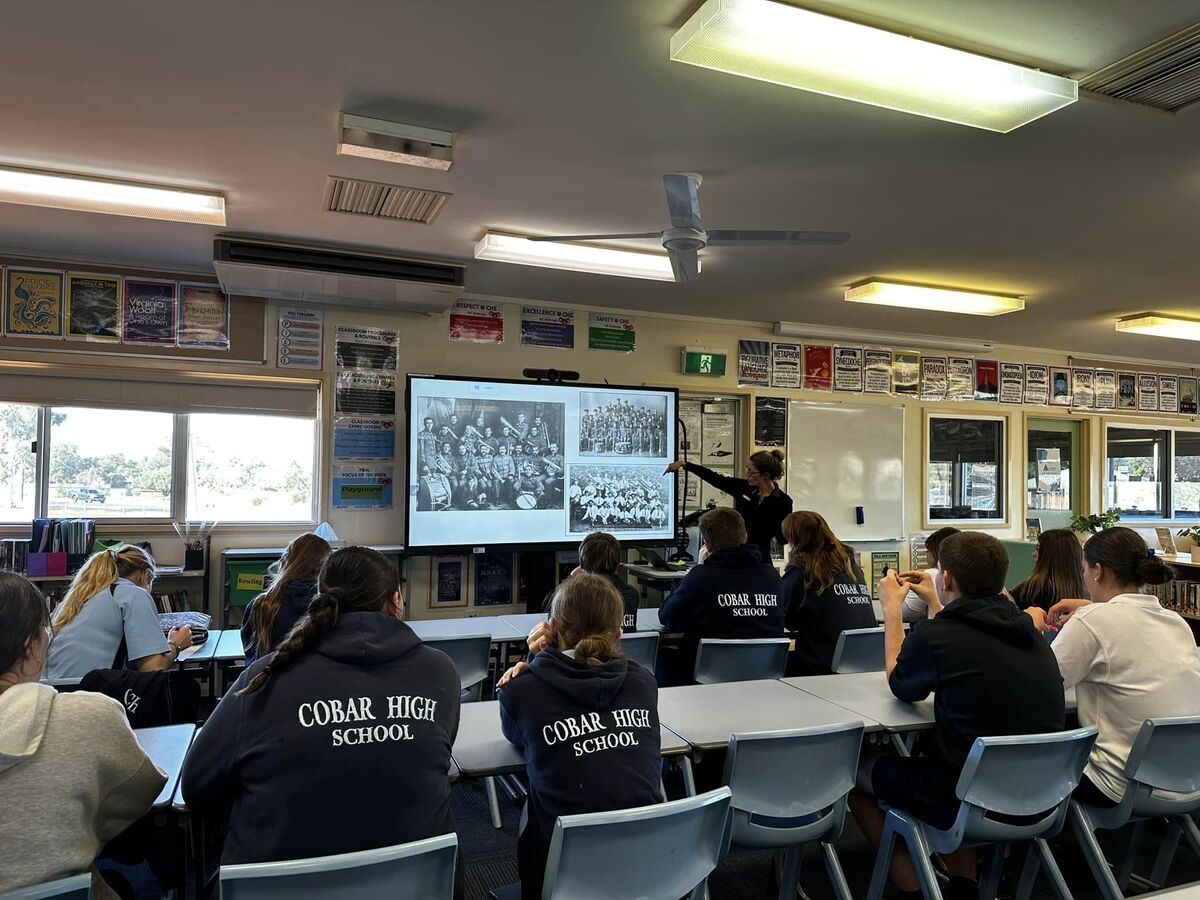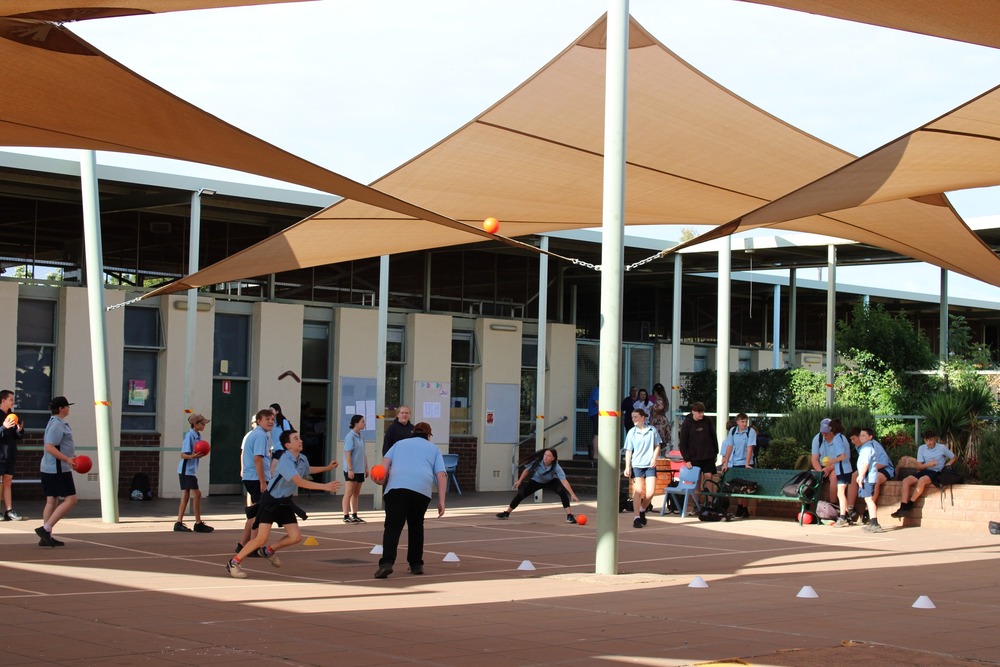A year without mobile phones: NSW public schools see a major shift
Lucy Dedman
27 October 2024, 8:20 PM
 Cobar High School students listening attentively to WW1 stories from museum curator, Kay Stingemore in their English class. Image: Cobar High School Facebook
Cobar High School students listening attentively to WW1 stories from museum curator, Kay Stingemore in their English class. Image: Cobar High School Facebook One year ago, the NSW government took a leap to address one of education’s most stubborn challenges: student distraction.
By banning mobile phones in public schools, the NSW Department of Education hoped the shift would improve student focus, socialisation, and overall learning.
A new survey from the Department of Education’s Centre for Education Statistics and Evaluation, which received responses from nearly 1,000 public schools, shows overwhelming support for the ban, with 95 per cent of principals backing the policy.
Of those surveyed, 87 per cent believe students are less distracted in the classroom since the policy took effect.
Cobar High School Principal Shane Carter says he has observed this for himself. "There's definitely been a lot more social interaction since it happened... the students are actually talking to each other.
"Before you might have had five kids sitting in a row and none of them talking but texting each other, whereas now they talk."
Mr Carter said the initial response was "actually pretty positive" and recalled that "the very first day it was interesting how noisy the playground was."
"We’ve got more students now, actively running around at recess and lunch, playing ball sports, before they were a lot less active."

Cobar High School students enjoying 'Fun Day Fridays' in November, 2023. Image: Cobar High School Facebook
The outdoor conversations are also translating into the classroom.
"Students were probably too busy when they were sneaking their phone - they were quiet while they were doing it. But now, the social interactions are a lot noisier in the classes."
It was in a Term 4, 2023 newsletter that Cobar High School announced their ban on mobile phones. ‘We are excited to make our school a mobile phone free space to improve learning and engagement.’
Twelve months later Mr Carter says there's definitely less disruption in the classroom and a lot more engagement from the students but that the benefits stretch even further.
"The reduced access to mobile phones has meant that from a discipline point of view, there's been a huge reduction in cyberbullying cases."
"We still get that sort of stuff coming through from predominantly outside of school, but the in-house stuff has definitely dramatically declined," Mr Carter stated.
Deputy Premier and Minister for Education and Early Learning, Prue Car endorsed the initiative, emphasising its contribution to a more focused and productive learning environment.
“Without mobile phones our students are more engaged in the classroom and are building stronger relationships with their peers” noted Ms Car.
Push for social media regulation continues
With International World Teacher’s Day celebrated on Friday, Premier Chris Minns stated the ban not only benefits students but "is also about supporting our state’s teachers to be able to teach engaged classrooms without the distraction of social media in every student's pocket."
The discussions around protecting young people from the negative effects of social media continue after Prime Minister, Anthony Albanese announced a national age ban would be in place before the next election.
Earlier in the month, more than 120 experts and dozens of organisations signed an open letter arguing that a ban 'is too blunt an instrument to address risks effectively.'
Despite this, the government appears to be ploughing ahead with the proposed ban. In a speech to the New South Wales and South Australian government social media summit, Federal Minister for Communications Michelle Rowland announced more details of the proposal.
Minister Rowland revealed that the government will amend the Online Safety Act to shift responsibility onto platforms rather than parents or young people to enforce the proposed social media ban. The changes will be rolled out over 12 months to allow industry and regulators time to establish necessary procedures.
The government says it plans to ‘set parameters to guide platforms in designing social media that allows connections, but not harms, to flourish.' These guidelines could aim to address potentially 'addictive' features by limiting harmful content through prioritising feeds from followed accounts or offering age-appropriate app versions.
An exemption framework is also being considered to allow access to social media services that demonstrate a low risk of harm to children. Yet, risk is difficult to define – especially when it comes to algorithms.
With other countries like Norway implementing a strict minimum age limit of 15, the government faces mounting pressure to take divisive action on the proposed national plan.



